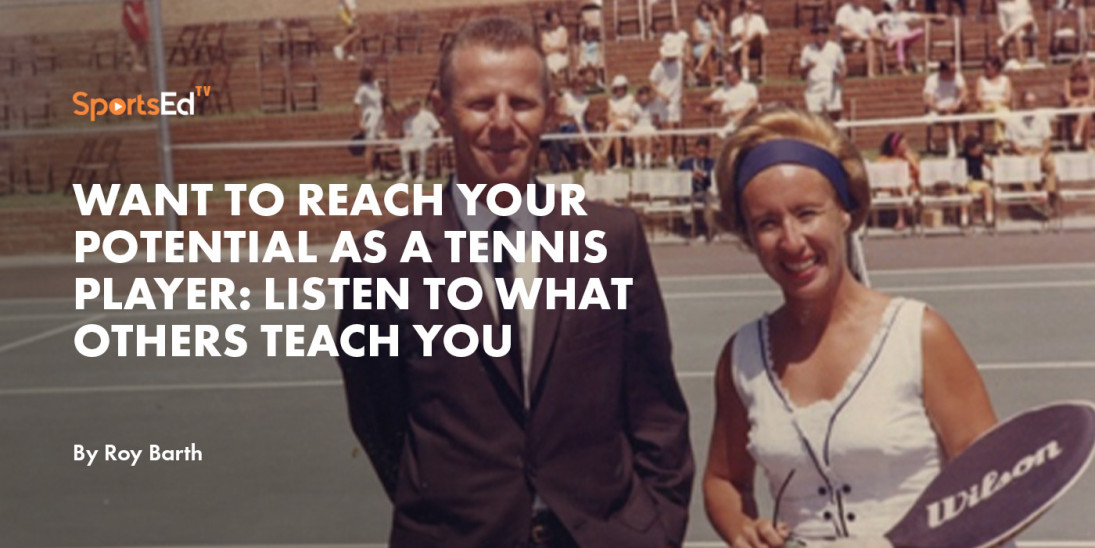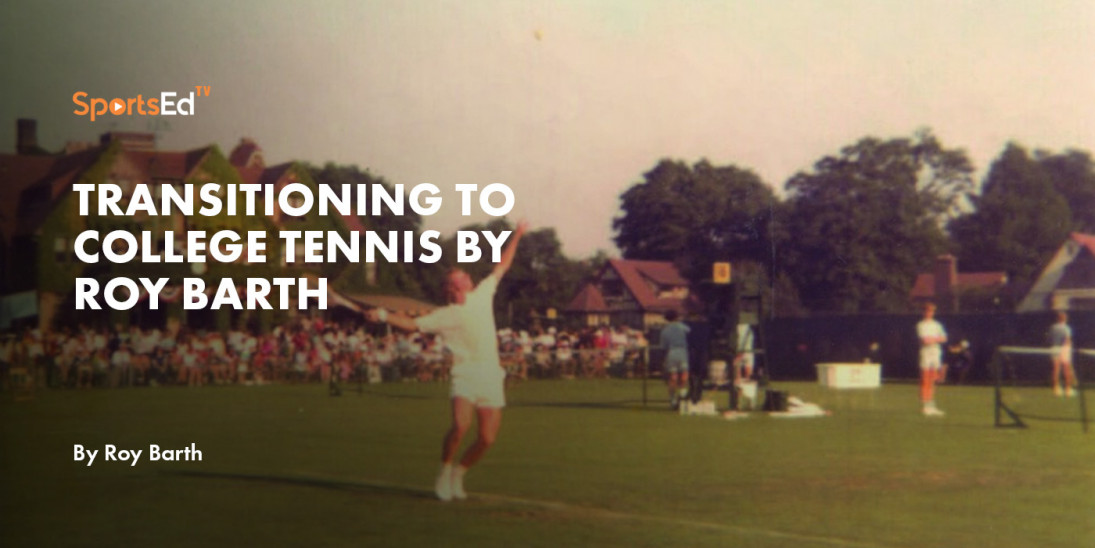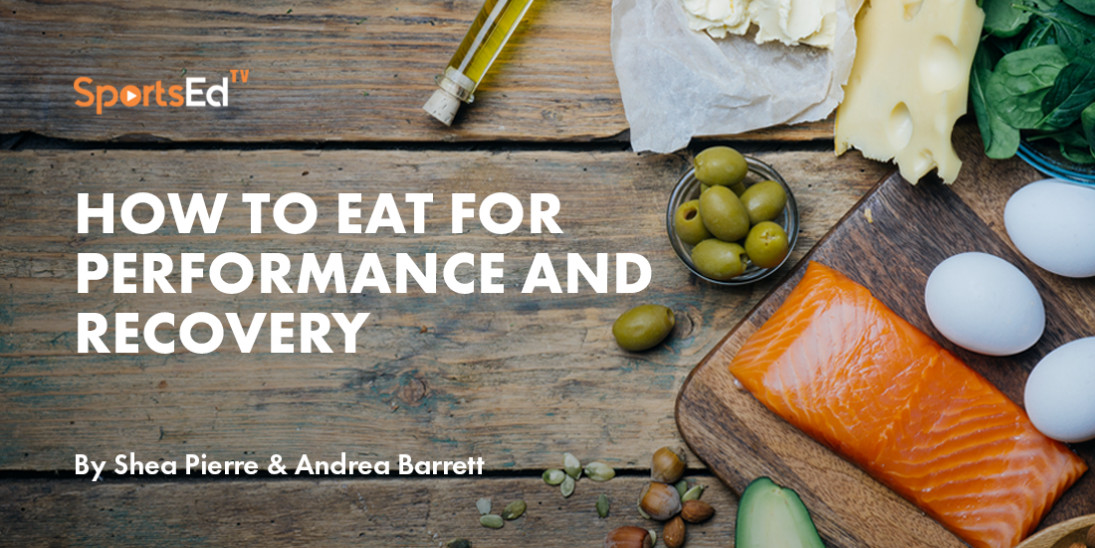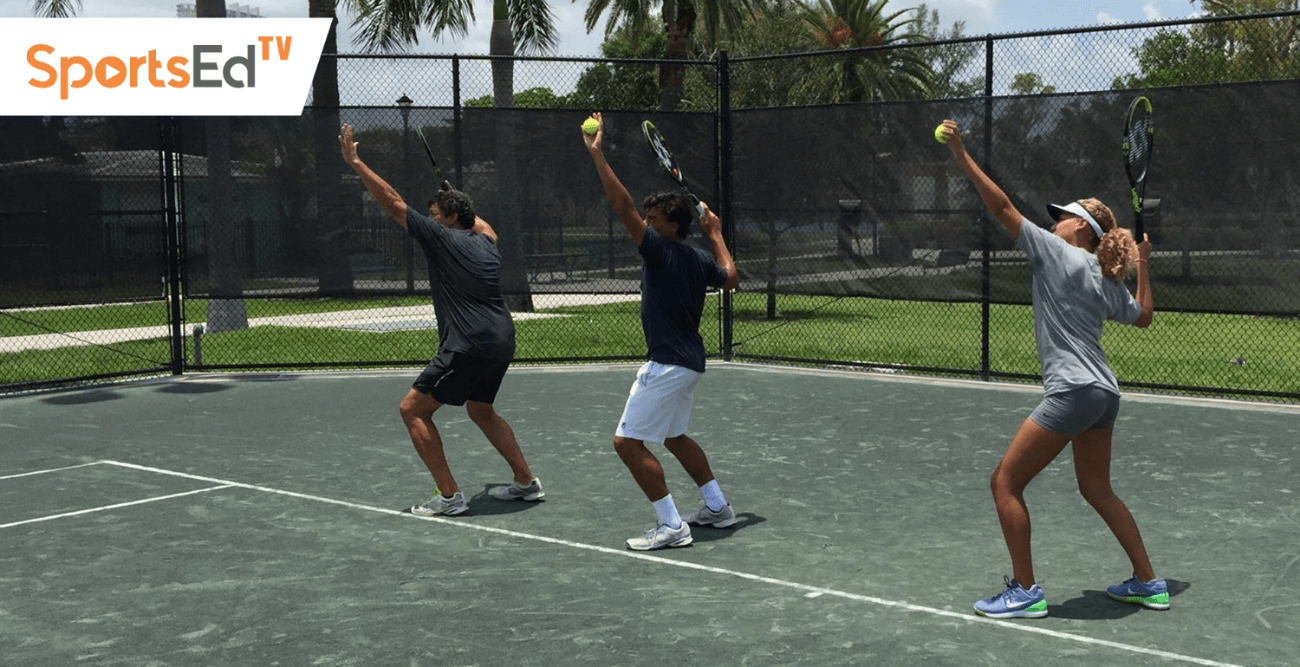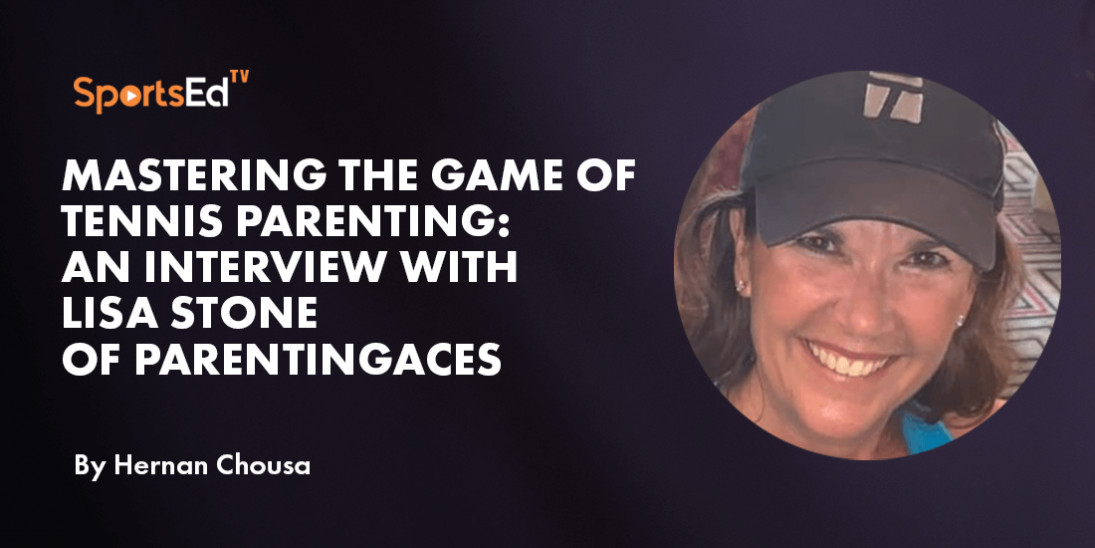Tennis
Welcome and thanks for visiting...

Tennis, Life Lessons, and the Pandemic
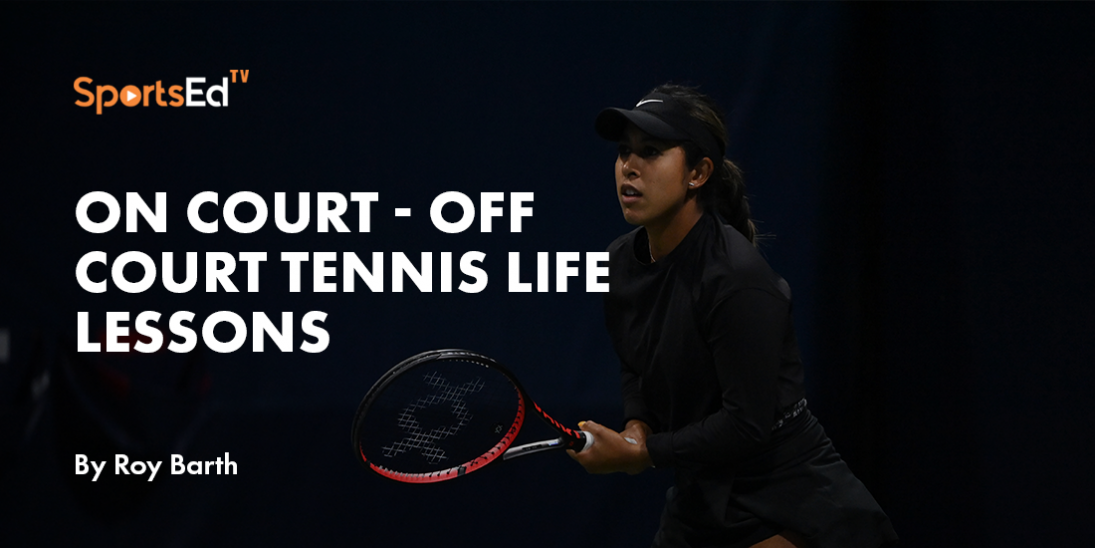
Excerpted from Point of Impact
In my new book, Point of Impact, I chronicle my lifelong journey in tennis and how the lessons I learned on the court became the life lessons of my off-court success. Two such lessons describe how I learned to “Gain Confidence Through Mini-Goals,” and “Maintain a Positive Attitude during Illness.” These lessons have been profoundly tested over the last few months. Have they helped me stay strong amid this worldwide pandemic?
I believe they have.
Gain Confidence Through Mini-Goals
Before I turned pro in 1969, I enjoyed success playing as an amateur in local, regional, and national tournaments. Those tournaments, like the Major tournaments, organize the players by ability (seeds) and pit stronger players against weaker players in the first few rounds. My national ranking allowed me to be seeded among the top players and I enjoyed a few easier early rounds. These wins in smaller tournaments boosted my confidence.
When I joined the World Championship Tennis tour (WCT) in 1971, however, I was still playing professional tennis, but the business model was different. I was a “contract pro.” The WCT — and similar tours — offered a guaranteed income (plus prize money for winning) to their hand-picked players and booked them into venues around the world to play twenty WCT tournaments, other non-WCT events, and the Grand Slams.
On the WCT, we practiced, drilled, and competed almost every week from January through October. I played against the best singles players in the world — Newcombe, Ashe, Laver, and Roche — and the best doubles teams in the world — Rosewall-Stolle, Laver-Emerson, Newcombe-Roche — in the first round every week. These guys were tough; there were no more “easier early rounds” for me to win. I lost a lot of matches and a lot of confidence. I didn’t like losing.
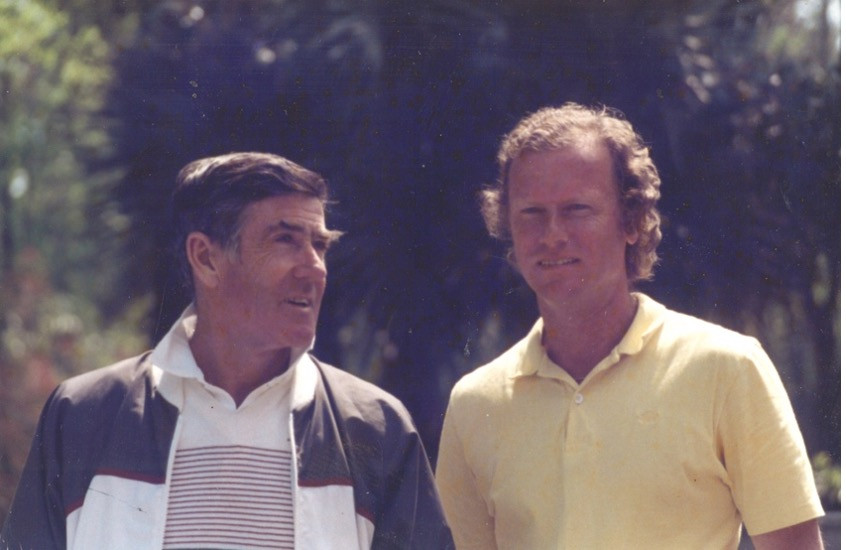
photo: Ken Rosewall and Me
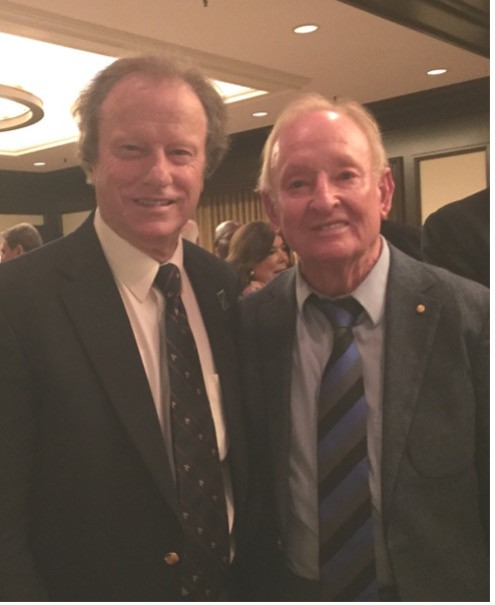
photo: With Rod Laver
While playing on the WCT tour against this caliber player, I figured out how to survive by trading winning for “mini-goals.” In the first four events I played on the WCT tour, I lost to John Newcombe, Arthur Ashe, Rod Laver, and Tony Roche. My “easiest” match in the first few months was against Bob Lutz, NCAA singles and doubles champion, who beat me in a tight three-set duel. I always played my hardest and wanted to win, but in the face of my incredibly tough daily competition, my reality was creating my own “wins,” despite the score. When I played Rod Laver, one of my mini-goals was to attack the net at every opportunity and not worry about being passed. If I did it, it was a “win.” Another mini-goal was to keep my feet in constant motion. If I did that throughout the match, it was a win. I played Rod three times before I was confident enough in my game to forget I was playing the “legendary Rod Laver.” I finally took him to three sets, twice. My confidence grew.
I created and managed my own mini-goals for years, keeping my win-loss record in my head. It was excellent discipline, my goals were good ones, and it took a lot of pressure off me to win each set.
Years later, when the owner of Kiawah changed the name of the resort from “Kiawah Island Golf and Tennis Resort” to “Kiawah Island Golf Resort,” the morale of my tennis department plummeted. I thought back to how creating mini-goals on the tour helped me gain confidence in the face of difficult challenges. My department needed the same focus. We didn’t have to dwell on the “big picture” name change — it didn’t at all diminish what my department offered — we just needed to define and conquer smaller goals to continue to distinguish ourselves. It worked.
What Life Lesson I Learned From Covid-19?
During this pandemic, I have not been able to dwell on the big picture. So many lives lost, so many sad stories, so many businesses in jeopardy. It’s unprecedented and overwhelming. To stay grounded, I created mini-goals for myself. I finally tackled some of the projects I’d been putting off (sorted through boxes of old family photos, re-landscaped an area of my yard), and I found some new interests (started riding my new bicycle, created a website). Without these projects, I would be having had a much harder time accepting the necessary isolation from work, friends, and especially my grandchildren.
Maintain a Positive Attitude During Illness
My best friend and doubles partner when I played as a junior in San Diego was Johnny Sanderlin. In 1960, we won the first annual National Boys 13-and-Under Clay Court Doubles Championship tournament. We even traveled from San Diego to the tournament in Chattanooga by overnight train.
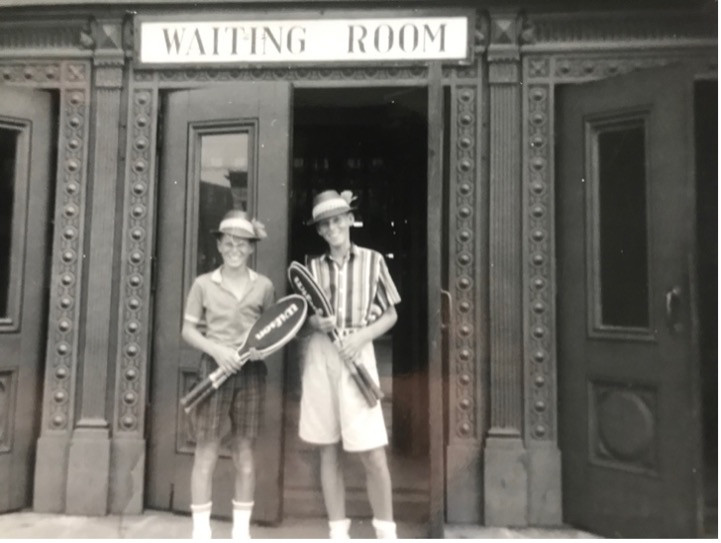
photo: Johnny and me about to board the train to our tournament
The next year Johnny learned he had a life threatening illness but he didn’t let it deter his enthusiasm. He never complained about being sick, choosing instead to dream about playing tennis for UCLA and then at Wimbledon. Like Johnny, I needed to be a positive thinker to survive in the tennis world. I think most tennis players do. It’s only you out there and you can be your own best friend or worse enemy.
Johnny’s positive attitude when we were young inspired me to find the strength to be positive when I faced my own life-threatening health scares as an adult. I thought of him when I arranged for the director of human resources at Kiawah to read my tennis department report at the executive committee meeting the morning I was wheeled into surgery. Imagining my colleagues laughing at my memo helped me relax and face my challenge.
During this pandemic we have the same choice. We can lament the cancelled events, the birthdays in isolation, the missed days at work, and the distance from family members, or we can celebrate the technology that brings us together while keeping us safe and recognize the heroes on the front lines who are performing essential services. I choose the latter.
Perhaps the worthiness of an idea to become a “life lesson” is how far it will expand to hold you up when your life takes unexpected turns. We’ve all been tested by this pandemic and I am comforted that my foundations have helped me adapt.
***
Roy Barth Short Bio
Roy Barth joined the professional tennis tour in 1968 and was a founding member of the ATP. He played in the US Open eight times, including a run to the fourth round in 1969. Beginning in 1976 — and for the next 42 years — Roy was the director of tennis at the Kiawah Island Resort, growing it into the No. 1 Tennis Resort in the World. He is also past president of the USTA South Carolina and a member of both the South Carolina and Southern Tennis Halls of Fame. Roy has written the Tips for Better Tennis Instructional Manual and produced the Tips for Better Tennis DVD. His new book, Point of Impact, has just been released.
His book, Point of Impact can be found on amazon.

